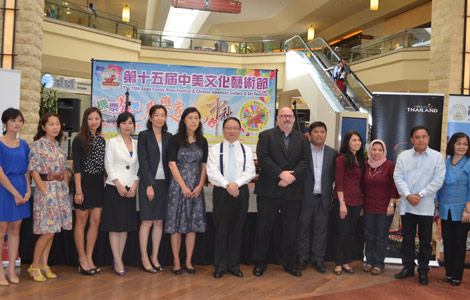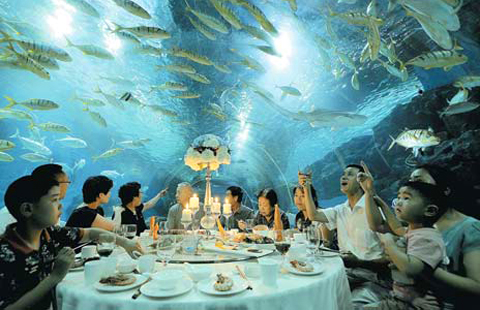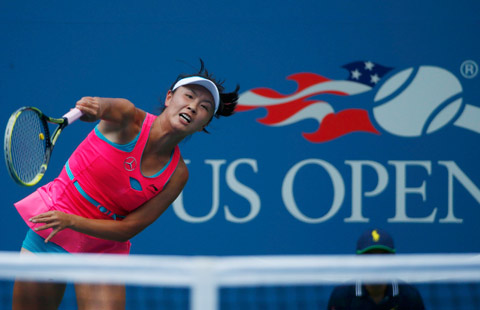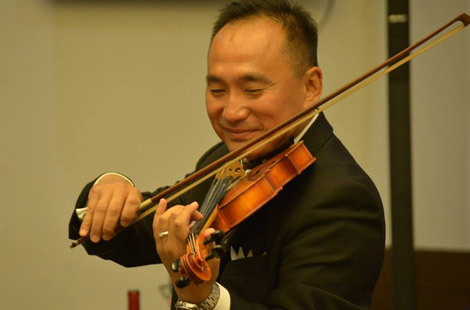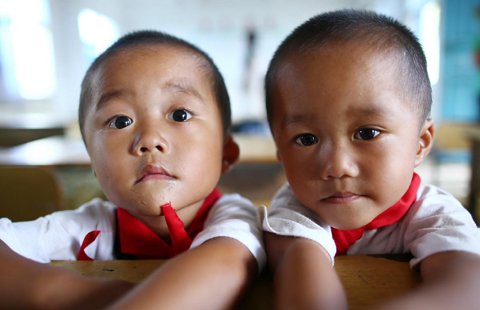State gifts give new look at China
Updated: 2014-09-01 07:07
By Zhao Shengnan(China Daily)
|
||||||||
DVDs of popular movie and TV series replace traditional offers of friendship on visits, reports Zhao Shengnan.
She took 33 days to recover from a painful breakup with her boyfriend before becoming confident enough to embark on a new relationship.
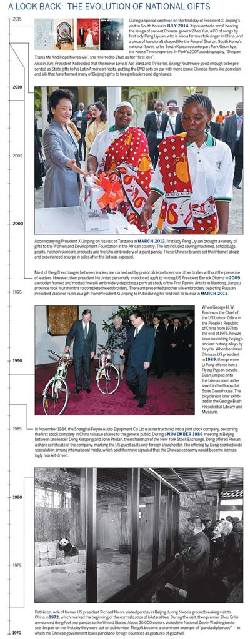 |
They banded together as a group of Chinese youths and left the comforts of their home and work, to explore the country and discover their aspirations.
The stories in the movie Love Is Not Blind and TV series Beijing Youth became hits at home for their accurate depictions of social issues including young adults' modern views of success and love.
The two tales also became part of a slew of recent movies and TV series that struck a chord with audiences nationwide.
In July, President Xi Jinping decided that these stories, with their heartwarming looks into ordinary Chinese lives, were good enough to be presented as gifts to his Latin American hosts.
That put the DVD sets on par with more iconic Chinese items like porcelain and silk that have formed many of Beijing's gifts to foreign leaders and dignitaries.
The marked departure from tradition generated great media interest. Observers said the DVD sets reflected an accurate, changing China, even if they were surprising.
"My experience tells me it doesn't matter how many gifts you give or how expensive the gifts are ... it is important that the gifts represent China and highlight shared values," said Lu Peixin, former acting head of the protocol department of the Foreign Ministry.
"Gifts like contemporary movies and TV dramas are a good choice as they help the world better know today's China and the Chinese," said Lu, 77.
"But I could hardly have thought of them when I was working in the ministry," he said, laughing.
"China today has much more things to present than before," said Lu, who spent more than half of his diplomatic career, from 1960 to 1997, in the protocol department.
After serving several generations of leaders, including Zhou Enlai, Deng Xiaoping and Jiang Zemin, Lu saw at first hand the changing tastes in gifts.
Modern China's diplomatic gifts are not only a token of friendship, they can also provide a tantalizing insight into its characteristics, tradition and progress.
Practical beginnings
When Chairman Mao Zedong visited the Soviet Union in December 1949, just two months after the founding of the People's Republic of China, he presented gifts that were carefully planned but probably very rare in modern diplomatic history.
Besides tea, porcelain and other offerings, Mao personally assigned two railway carriages to be packed with vegetables and fruits including cabbage, scallions and kumquats, as gifts from the newborn country to its then "big brother".
"In the early days of New China, we were not quite clear about gift-giving. So we tended to give a large amount of practical gifts that could be used, like food and clothes, to benefit more people rather than just the top leadership," Lu said.
Being practical and useful to the greater public also mean different things in different times.
Most Viewed
Editor's Picks

|

|

|

|

|

|
Today's Top News
Hotline set to help out Chinese overseas
Minorities outnumber whites in US public schools
Water use casts doubts on future of shale gas
US doctor in Liberia tests Ebola positive
China's August PMI decreases, but slightly
Monopoly probes treat firms equally
Gene to fight Parkinson's discovered at UCLA labs
China's Uncle Sam ready to test US market in NYC
US Weekly

|

|


